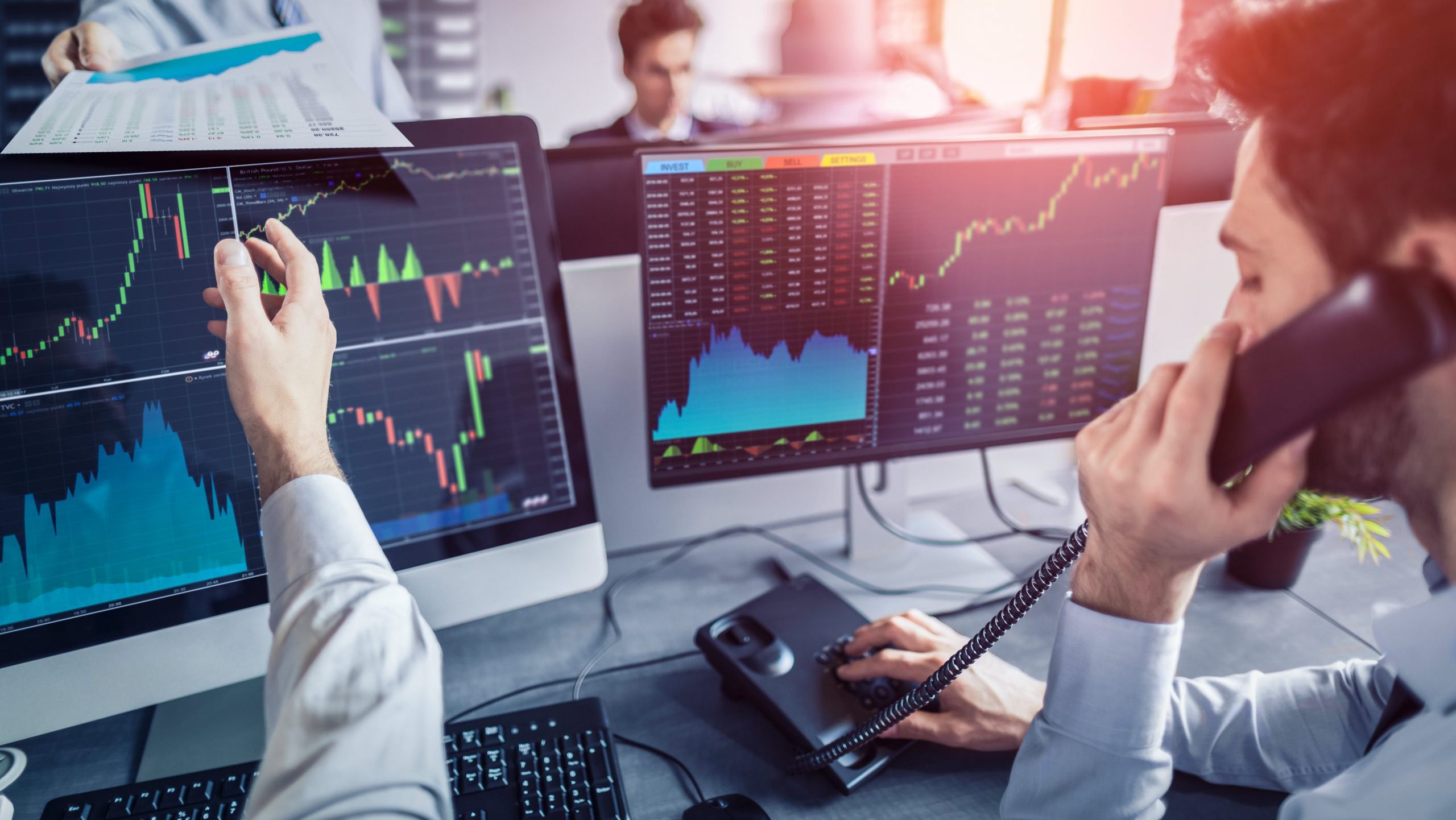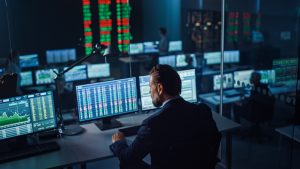
Grasping the world of trading can seem a tad complex at first glance. In “What Is The Role Of Brokers And Market Makers In Trading,” you’ll be taken through a simplified overview of these critical roles, which are the heartbeats of the financial market. This feature discovers the importance of brokers, who are your negotiators in the market, and the market makers, who ensure that buying and selling processes run smoothly and efficiently. Time to unlock the intricate behind-the-scenes work that accelerates your path to financial investment success.
Understanding The Role Of Brokers
The financial ecosystem is vast, encompassing various figures such as investors, financiers, traders, and many others. Among these, brokers hold an important and comprehensive role.
Definition of a broker
A broker, in simple terms, is an individual or a firm that operates as an intermediary between buyers and sellers. They facilitate transactions by bringing together the two parties involved. Brokers don’t own the assets they trade, but they earn money through commissions or fees they charge for the service they provide.
Types of brokers
There are different types of brokers who specialize in various asset classes. You have stock brokers, forex brokers, commodity brokers, real estate brokers, and even insurance brokers, each serving as a bridge between buyers and sellers in their specific market. Within these divisions, you may also find full-service brokers providing comprehensive advice and services, and discount brokers who offer lower fees but limited services.
Regulations and compliance for brokers
The brokerage industry is heavily regulated to protect investors and the overall market’s integrity. Numerous laws and regulatory bodies oversee brokers’ activities, varying from one country to the other. In the US, the Securities and Exchange Commission (SEC) and the Financial Industry Regulatory Authority (FINRA) are among the prominent bodies overseeing brokers’ operations.
How brokers earn money
Brokers typically earn money through commissions or fees charged for the services they provide. This may be a percentage-based commission on the value of each transaction, a fixed amount per trade, or a combination of both. Some brokers may also earn from account maintenance fees. The earning model varies widely, so always be sure to understand how a broker’s fee structure operates before engaging their services.
Role Of Stock Brokers In Trading
Among the different types of brokers, stock brokers are perhaps the most commonly known.
Function of a stock broker
In trading, a stock broker’s primary function is to buy and sell stocks for clients. Clients can be individual retail traders or institutional investors. When a client wishes to buy or sell a stock, they place an order with the broker, who then engages the market on behalf of the client to facilitate the trade.
Mediating transactions
A broker mediates transactions by finding a party that is willing to take the opposite position of the trade. This might mean finding a seller for a buyer or vice versa. Brokers have access to large networks and various exchanges, enabling them to find matches for their clients efficiently.
Providing price quotes and market information
Brokers also provide crucial services such as offering real-time price quotes and market information. They often have advanced technology, platforms, and tools that provide comprehensive market data, research, and analytics to help clients make informed trading decisions.
Brokers’ role in stock exchanges and over-the-counter markets
In stock exchanges and over-the-counter (OTC) markets, brokers play an integral role. On stock exchanges, brokers represent clients and execute trades on their behalf. In the OTC markets, where trades happen directly between two parties without the oversight of an exchange, brokers enable these transactions by connecting buyers and sellers.
Understanding The Role Of Market Makers
While brokers are important intermediaries in the trading world, there is another breed of professionals equally crucial – market makers.
Definition of a market maker
A market maker, as the name implies, is a firm or individual who actively quotes buy and sell prices for a security to provide market liquidity. They essentially “make a market” for a security by being ready to buy or sell at publicly quoted prices.
Market makers vs brokers
While both market makers and brokers play vital roles in the financial markets, their functions differ significantly. While brokers act on behalf of their clients, market makers act independently. They take on risk by holding a certain amount of a specific security to facilitate trading in that security.
How market makers earn money
Market makers earn money through the bid-ask spread, which is the difference between the price they’re willing to pay for a security (the bid) and the price at which they’re willing to sell (the ask). The spread enables market makers to earn profits while providing continuous liquidity to the market.
Role Of Market Makers in Trading
Beyond simply earning a profit, market makers have several crucial responsibilities in the trading world.
Market makers’ role in maintaining liquidity
Market makers are vital for maintaining market liquidity. They are obliged to buy or sell securities even during market imbalances, such as when there are more sellers than buyers, ensuring that trades can be executed without significant delay.
Setting bid and ask prices
Market makers set bid and ask prices for the securities in which they make a market. These prices reflect the current demand and supply for the security and help maintain orderly trading.
Risk management in market making
Given that market makers hold substantial security portfolios, managing risks is a crucial part of their function. This may involve diversifying their holdings, hedging their positions, and employing sophisticated pricing models to ensure they can continue to maintain liquidity, even in volatile market conditions.
Importance Of Brokers And Market Makers In Trading
Both brokers and market makers play vital roles in ensuring a functioning, efficient financial market.
Promoting market efficiency
Brokers and market makers promote market efficiency by enabling quick, seamless transactions and providing liquidity. In doing so, they assist in price discovery, wherein the prices of securities adjust to reflect current information.
Reducing the bid-ask spread
Through their actions, brokers and market makers can help reduce the bid-ask spread. Market makers, by being ready to buy or sell a security, narrow the differences between bid and ask prices, reducing the costs for traders. Brokers, by facilitating competition between market makers, can also help tighten spreads.
Managing market volatility
Market makers, by providing continuous liquidity even under volatile market conditions, help manage market volatility. By ensuring there’s always a willing buyer or seller, they can prevent excessive price swings and maintain market stability.
Interaction Between Brokers And Market Makers
In the realm of trading, brokers and market makers interact and collaborate in several ways.
Act as intermediaries in trades
Both brokers and market makers function as intermediaries in trades. Brokers connect traders with the broader market, while market makers hold inventories of securities and stand ready to buy and sell to provide liquidity.
Collaboration in market information
Brokers and market makers often share and use common market information. The prices quoted by market makers are vital data for brokers and their clients, while order flow information from brokers can inform market makers about the current market sentiment.
Role during high volume trades
During high volume trades, the interplay between brokers and market makers becomes even more critical. Brokers handle the influx of orders, while market makers ensure all these orders can be executed by providing the necessary liquidity.
Understanding Trading Platforms & Systems
In this digital age, trading has become accessible to anyone with a computer or smartphone, thanks to electronic trading platforms and systems.
Electronic trading platforms and systems
Electronic trading platforms are software applications that allow traders to open, close, and manage positions via an online broker. Nowadays, these systems are at the heart of the retail trading industry, facilitating immediate access to financial markets around the globe.
Types of trading systems used by brokers and market makers
Brokers and market makers use various trading systems, including order management systems (OMS), algorithmic trading systems, and electronic communication networks (ECNs). These systems provide the automation, speed, and efficiency needed to handle a high volume of orders and provide real-time market information.
Regulation of trading systems
Regulators have rules in place to ensure fair trading practices in these electronic systems. These rules are continually updated to safeguard the interests of all participants and maintain market integrity.
Procuring a broker and market maker services
If you’re looking to get started in trading, you’ll need to understand how to procure the services of a broker or a market maker.
Factors to consider when choosing a broker or market maker
When choosing a broker, consider factors such as the broker’s regulatory status, fee structure, trading platform, customer service, and market reputation. If you’re a market participant that requires the services of a market maker, such as an ETF issuer, consider factors like their market reputation, financial stability, and the markets where they operate.
How to open an account
To open a brokerage account, you usually need to fill out an application with the broker. This usually involves providing personal identification information, financial information, and your investment experience and objectives.
Potential red flags when selecting a broker or market maker
Red flags to watch out for when selecting a broker or market maker include a lack of transparency in their fee structure, poor customer service, negative user reviews, and a lack of regulatory oversight.
Impact of Technology and Algorithms on Brokers and Market Makers
Technology has had a tremendous impact on how brokers and market makers operate, particularly in the use of algorithms for trading.
Role of automated trading
Automated trading, or algorithmic trading, involves using pre-programmed instructions to place trades, reducing the need for manual execution. Both brokers and market makers utilize algorithmic trading to manage their orders efficiently.
How algorithms influence market making and brokering
Algorithms can influence market making and brokering by enabling faster execution, minimizing the impact on the market price, exploiting price differences, and managing risk effectively. This technology has greatly increased the efficiency and speed of operations.
Cybersecurity in trading systems
With greater reliance on technology comes increased vulnerability to cyber threats. Hence, brokers and market makers are investing heavily in cybersecurity measures to protect their systems and client data.
Future Trends in Brokering and Market Making
As the financial markets continue to evolve, brokers and market makers must adapt to survive and thrive.
Impact of fintech start-ups
Fintech start-ups are disrupting traditional brokerage and market making models, offering low-cost, tech-driven solutions. Such firms leverage advanced technologies, including artificial intelligence and big data, to provide superior customer experiences.
Increased regulations and compliance
Regulatory standards and compliance requirements will continue to intensify, calling for improved transparency and better risk management practices among brokers and market makers.
Evolving role of brokers and market makers with AI and Machine Learning
Artificial intelligence (AI) and machine learning (ML) have the potential to transform the roles of brokers and market makers. These technologies can help predict market trends, automate trading strategies, minimize risks, and even personalize the client experience in brokerage services.
In a nutshell, brokers and market makers play indispensable roles in the trading ecosystem. Understanding how they operate will provide you with a clearer picture of the financial market’s inner workings, enabling you to make more informed trading decisions.





